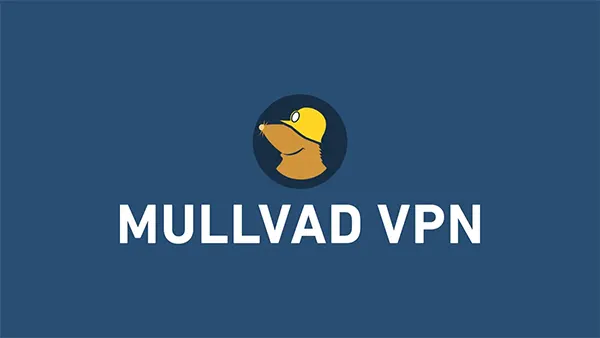Ans: Yes, ProtonVPN Free is a great option.
5+ Best VPN for Linux: Secure Browsing Made Simple
As a Linux user, you may have more technical understanding than the average computer user, but that doesn’t guarantee your internet safety. Though Linux has a reputation for security, your activity on the internet is still visible to hackers, ISPs, government surveillance, and geo-restrictions. That’s where a VPN (Virtual Private Network) comes in.
The best VPN software for Linux will guarantee encrypted browsing, safe access to public Wi-Fi, and allow access to streaming platforms like Netflix, Hulu, and BBC iPlayer. Best of all, many reputable VPN providers now have a dedicated Linux client with either command-line support or a GUI.
In this guide, we’ll take you through the best VPN for Linux in 2025.
Why Use a VPN for Linux?
Whether you are using a hardened distribution such as Debian or Fedora, it doesn’t matter; your activities are still visible to the world without a VPN. Here are the reasons why you need a VPN with Linux:.
- Protects Your Online Privacy – Hides your real IP address and browsing habits from trackers, ISPs, and advertisers.
- Protects Your Internet Traffic – Keeps hackers from snooping on you, especially if you are using public Wi-Fi.
- Bypass Geo-Restrictions – Able to use streaming services from other countries’ Netflix libraries, and access content like BBC iPlayer, Disney+, Hulu, etc.
- Escaped Government Censorship – VPNs are able to access restricted content in countries with strict internet regulations.
- Safe Remote Work – Have secure connections, whether you are working on servers or transferring sensitive files.
In summary, a VPN closes the privacy holes that Linux cannot.
List of 5+ Best VPN for Linux
Here is the list of VPNs recommended by us for Linux users. These are tested for speed, security, and ease of setup.
Have a look.
1. VPNeer

VPNeer is an ultimate VPN for secure, fast, and private browsing. It is the number one choice for Linux users to browse the internet. It is compatible with most Linux distros and also comes with a GUI app. The features of VPNeer include IP masking, geo-blocking content, strong encryption, multi-device support, a no-logs policy, and more. VPNeer also has a built-in ad and malware blocking feature.
VPNeer has servers in 40+ countries that come with unlimited bandwidth. VPNeer is built with public wi-fi protection to safeguard your data when you are connected to public Wi-Fi networks.
Pros and Cons
| Pros | Cons |
| Affordable pricing | Limited free version |
| No-log policy | It can be confusing for beginners |
| Built-in ad and malware blocking | |
| Fast speeds |
2. NordVPN

NordVPN is a popular VPN for Linux for its amazing service. This well-established VPN offers a traditional command-line app, as well as a very user-friendly GUI app. It is compatible with more Linux distros than any other service on our list and provides nearly all of the same premium features on Linux as you see on most other platforms. The features include an automatic kill switch, integrated ad remover, and malware protection. The supported distros are Ubuntu, Debian, Elementary OS, Linux Mint, Fedora, RHEL, CentOS, Qubes OS, and openSUSE.
This VPN offers advanced encryption and WireGuard-based NordLynx protocol for faster speeds. It also has a library of massive 7900+ servers all over the world. It could be a great choice for people looking for a privacy-focused service.
Pros and Cons
| Pros | Cons |
| Fast and secure with NordLynx (WireGuard-based) | No GUI, only command-line use |
| Includes features like kill switch, Threat Protection, Meshnet, and double VPN | No port forwarding |
| Strict no-logs policy | Basic router setup |
| 7,900+ servers in 126+ countries | |
| Open-source client with easy installation (Snap, .deb) |
3. SurfShark

SurfShark is a great VPN service provider that comes with a full GUI Linux app. The app makes it easy for new Linux users who have not learned the command line yet. However, the app is available for limited distros (Ubuntu, Mint, and Debian-based distros).
Connection speeds for SurfShark are the fastest in the UK. However, it is a bit slower than NordVPN when it comes to establishing a connection. It offers multi-hop servers and servers with static IP. One thing to note here is that the Linux app of this free VPN for Linux does not include stealth mode or split tunneling. They are available on other platforms.
Pros and Cons
| Pros | Cons |
| Has a GUI app for Linux (user-friendly) | Some features are missing in the GUI (auto-connect, kill switch) |
| Supports CleanWeb, WireGuard, | Occasional connection or DNS issues |
| Unlimited device connections | |
| 3,200+ servers in 100+ countries | |
| Fast speeds and streaming support |
4. Mullvad

Mullvad VPN is a privacy-centric option for users of Linux and is well-known for promoting anonymity and security online. Operating out of Sweden, Mullvad VPN is strictly committed to a no-logs policy. You can set up an account without even providing your name, just a random account number.
Mullvad’s Linux app is an open-source client and allows for configuration using either WireGuard or OpenVPN, which should both offer extreme speeds while maintaining security. Mullvad is also unique because its pricing model is the same regardless of whether you are a user from Australia or Sweden! Users who are interested in complete anonymity will greatly appreciate the flat-rate pricing offered by Mullvad.
Pros and Cons
| Pros | Cons |
| GUI app available for Linux (plus CLI) | Smaller server network than big providers |
| Strong privacy features like no-logs policy, anonymous signup & payments | Limited streaming unblocking |
| Secure features like kill-switch, split tunneling, multi-hop via “Bridge” servers | GUI may be minimalistic for some users |
| Broad protocol support (WireGuard, soon OpenVPN removal) | |
| Flat-rate, transparent pricing |
5. ProtonVPN

ProtonVPN ranks among the best VPNs for Linux users as it delivers both reliable security and is easy to use with its open-source Linux app, which provides a GUI option.
ProtonVPN supports WireGuard and OpenVPN as advanced protocols, giving you both speed and a higher level of security across your connection. Their free plan is most appealing in that the data usage is unlimited, but access to servers is limited compared to the premium plan. If you are looking for a trustworthy free VPN for Linux, ProtonVPN is quite possibly the only provider that offers a completely no-cost VPN solution that offers no data caps.
With their transparent policies, solid encryption, and open-source approach, ProtonVPN is a good choice for Linux users who want reliability and privacy controls.
Pros and Cons
| Pros | Cons |
| Offers a graphical app for Linux with an intuitive interface | Some advanced features require subscription tiers |
| Strong focus on privacy and security (e.g., Secure Core, audited no-logs policy) | Fewer servers compared to larger VPN providers |
| Includes features like split tunneling, kill switch, and DNS leak protection | The GUI app may not be as polished on all distributions |
| High-speed performance on paid plans, good for streaming | |
| Source-available Linux client with transparent development |
6. Private Internet Access

Private Internet Access (PIA) has an open-source VPN client that works for Linux, so users can be confident in the security of the client. That offers a large and diverse global server network, PIA is great for power users who want full freedom and control over their Linux VPN client.
PIA’s VPN service supports multiple protocols and strong encryption options, customized split tunneling, and a kill switch. PIA is geared for users who want flexibility and performance in their VPN service. PIA has availability and reliability, especially when providing customization focused on user preferences. PIA is a great VPN for Linux users who want control, privacy, and the performance of a VPN service.
Pros and Cons
| Pros | Cons |
| Full-featured GUI app for Linux | Speeds can be slower than top rivals |
| Open-source client with strong privacy | Based in the US (jurisdiction concern) |
| Supports WireGuard, OpenVPN, kill switch, split tunneling, and ad-blocking | Streaming access may be inconsistent |
| Huge server network (incl. all U.S. states) | |
| Unlimited simultaneous connections |
7. CyberGhost VPN

CyberGhost VPN has a simple Linux app that combines a simple frontend with powerful privacy functionality. Based in Romania with strict privacy laws, CyberGhost also maintains an obvious no-logs policy. CyberGhost has many available servers optimized for streaming, torrenting, and surfing without collecting logs. These features provide the flexibility for a diverse Linux VPN software offering.
With its support of OpenVPN and WireGuard, CyberGhost will ensure that speed is obtained without sacrificing security. Their straightforward setup, along with dedicated servers, will make it appealing for Novices new to using Linux.
Pros and Cons
| Pros | Cons |
| Large server network over 9700 servers (100+ countries) | No official GUI. Only Linux command-line is available |
| Good speeds and streaming performance | Installation and updates can be clunky and error-prone |
| Strong privacy: audited no-logs policy | WireGuard is often broken or unsupported on Linux |
| Specialized servers (streaming, torrenting) | |
| Blocks ads/trackers via content blocker |
8. AirVPN

AirVPN is a Linux-friendly VPN service that was founded by a group of activists and hacktivists who are committed to making a positive impact while remaining privacy and net neutrality focused. AirVPN is open-source and supports open-source protocols like OpenVPN and WireGuard, meaning it prioritizes privacy, secure encryption, and provides full transparency over its software.
Based in Italy, AirVPN follows an extremely strict no-logs policy and is dedicated to protecting its users from censorship and mass surveillance. AirVPN has a user interface with a bit of a learning curve if you are a beginner. However, once you get your head around it, you will appreciate the many customization options and advanced features, including port forwarding.
Pros and Cons
| Pros | Cons |
| GUI app available on Linux with advanced features | The interface is cluttered and not beginner-friendly |
| Strong privacy and security (no-logs, open-source, encryption) | Small server network, limited to ~200 servers in ~23 countries |
| Supports OpenVPN, WireGuard, port forwarding, and VPN over Tor | Poor streaming support can’t unblock major services |
| Highly customizable setup (kill-switch, split tunneling, etc.) | |
| Excellent for bypassing censorship (e.g., China) |
Conclusion
Linux is already one of the most secure operating systems, but a solid VPN is second to none when it comes to online privacy and access to worldwide content. VPNeer is the best overall choice for Linux users if they are just starting with their VPN journey on a budget. You can also choose options like CyberGhost VPN, NordVPN, or ProtonVPN, and rest assured that your online activity is private. These VPNs for Linux offer some of the best features in the industry.
If you are truly serious about security, one of the best VPN software for Linux will be a great investment for the online freedom it provides you with. It’s a huge benefit to have simple, secure browsing across any distro.
FAQs
Q: Is there a free VPN for Linux?
Q: Which VPN works best on Ubuntu?
Ans: VPNeer and NordVPN have the smoothest experience on Ubuntu.
Q: Do VPNs slow down Linux internet speed?
Ans: Slightly, but top VPNs like VPNeer and WireGuard-based VPNs are very fast.
Q: Can I set up my own VPN on Linux?
Ans: Yes, using OpenVPN or WireGuard, you can self-host your VPN on a VPS.
